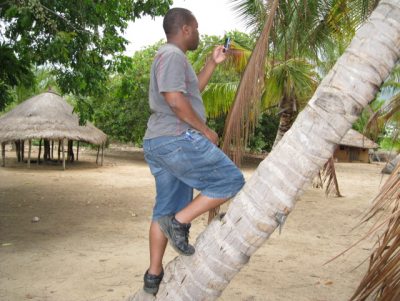Authors
Daniel Llywelyn Strachan1, Karin Källander2,3, Maureen Nakirunda4, Sozinho Ndima5, Abel Muiambo5, Zelee Hill1 and the inSCALE study group
1UCL Institute for Global Health, London UK 2Malaria Consortium, London UK 3Karolinska Institutet, Stockholm, Sweden 4Malaria Consortium Uganda, Kampala, Uganda
5Malaria Consortium Mozambique, Maputo, Mozambique.
Background
Community health workers (CHWs) are used in low-income countries to address human resources shortages, yet there remain few effective, evidence-based strategies for addressing the enduring programmatic constraints of worker motivation, retention and performance. This poster presents two interventions designed by the Innovations at Scale for Community Access and Lasting Effects (inSCALE) project to address these constraints in Uganda and Mozambique with the ultimate aim of improving the quality of care provided to sick children.
Method
The work motivation theory and CHW motivation literature was reviewed with articles sourced through electronic web searches. Formative research was conducted with community health workers and key stakeholders in Uganda and Mozambique focusing on the barriers and facilitators to CHW motivation, retention and performance. Thematic analysis of transcripts from 98 in-depth interviews and 26 focus group discussions was performed.
Results
From the literature review it was determined that the interventions should emphasise that CHWs are members of a collective, social identity by highlighting a sense of shared experience and promoting the alignment of worker and programme goals. The formative research indicated that CHWs value feedback and feeling connected to the health system and their community, are motivated by status and community standing, and want to be provided with the necessary tools to perform. By drawing on formative research with CHWs the interventions sought to address the influence of CHW working context identified as a weakness of previous interventions. Two interventions were developed: a participatory, local community supported approach and an information communication technology (ICT) supported approach.
Conclusion
Drawing on theory and contextual data can potentially lead to the development of appropriate and effective interventions when aiming to improve the motivation, retention and performance of CHWs in Uganda and Mozambique and other comparable settings. Evaluation of the developed interventions is crucial to assess this potential.

 Close
Close

